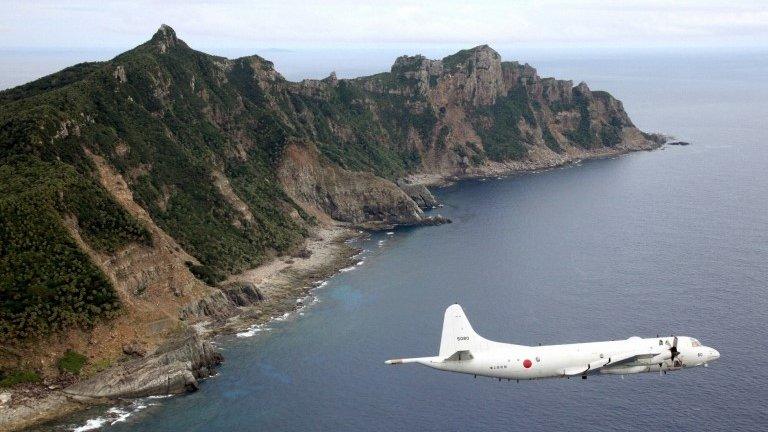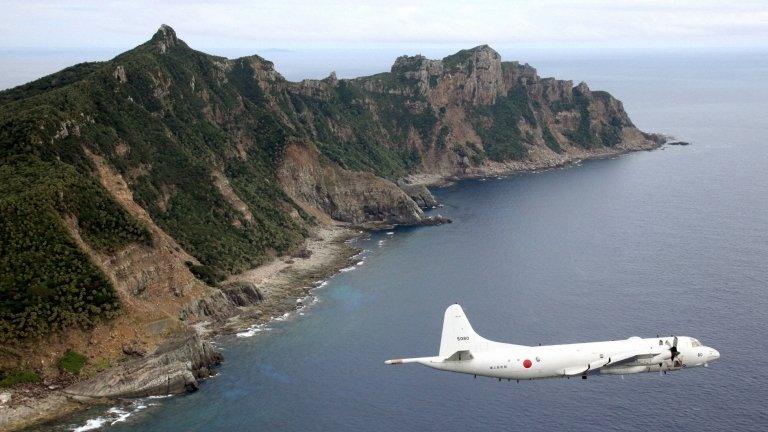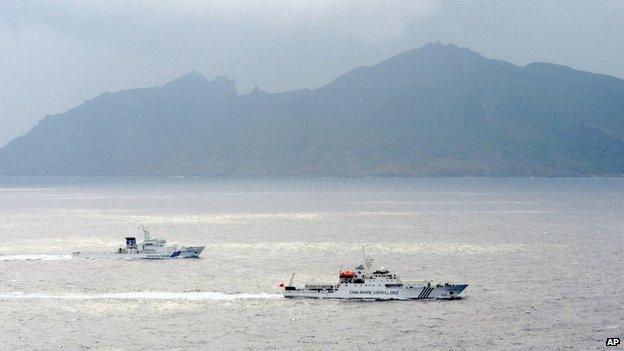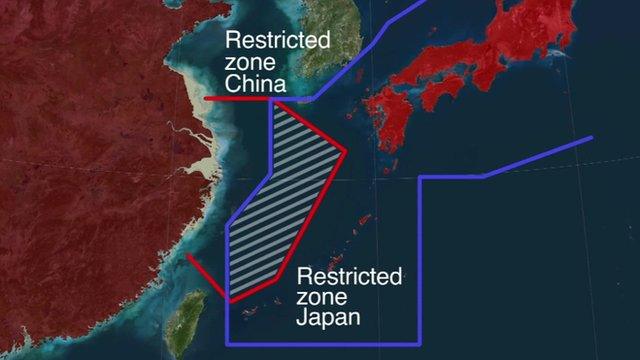South Korea announces expanded air defence zone
- Published
One of the now disputed areas is a submerged rock on which a South Korean maritime research base is perched
South Korea has announced it is expanding its air defence zone, which will now partially overlap with a similar zone announced by China.
The two zones will now both include a rock claimed by both countries and controlled by South Korea.
The defence ministry said it would co-ordinate with "related countries".
China announced a new Air Defence Identification Zone (ADIZ) last month, in a move that raised regional tensions.
Both countries' zones will cover the airspace above a rock called Ieodo by South Korea and Suyan by China, which is claimed by both countries.
As well as Ieodo rock, South Korea's Defence Ministry also said the new military air defence zone would cover the airspace above Marado and Hongdo islands controlled by Seoul in waters south of the peninsula.
The new parameters are a direct challenge to China's own air defence zone, which covers part of the same area, says the BBC's Lucy Williamson in Seoul.
South Korea said its zone would take effect on 15 December, and that neighbouring countries had already been notified of the change.
The government would continue to consult with neighbouring countries to stop accidental military clashes, it said.

"We will co-ordinate with related countries to fend off accidental military confrontations and to ensure safety of airplanes," defence ministry spokesman Kim Min-seok told the AFP news agency on Sunday.
South Korea has already challenged China's attempt to impose its authority in the area by flying military planes through the zone announced by Beijing.
Commercial airlines in South Korea have also been advised not to comply with China's demands for planes to identify themselves to it.
The US and Japan have also rejected China's zone and flown undeclared military aircraft through the zone.
It will be the first time that South Korea has adjusted the zone since it was first set up by the US military in 1951 during the Korean War, South Korea's Yonhap news agency reports.
China's recently announced ADIZ also covers islands claimed and controlled by Japan.
China said aircraft flying through the zone must follow its rules, including filing flight plans.
Earlier this week, US Vice-President Joe Biden said China's announcement had caused "significant apprehension in the region".
He was speaking during a visit to China overshadowed by tensions raised by the announcement.
- Published28 November 2013

- Published26 November 2013

- Published10 November 2014

- Published4 December 2013
